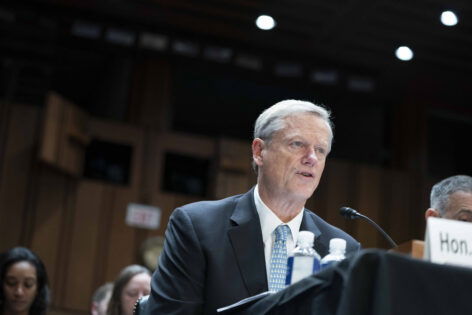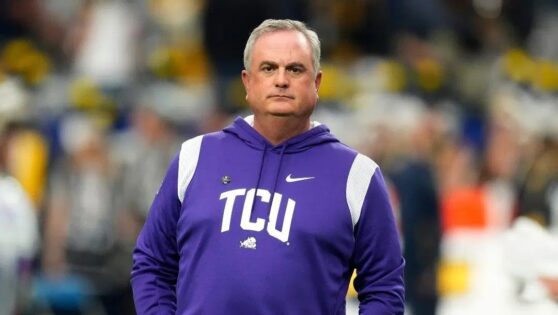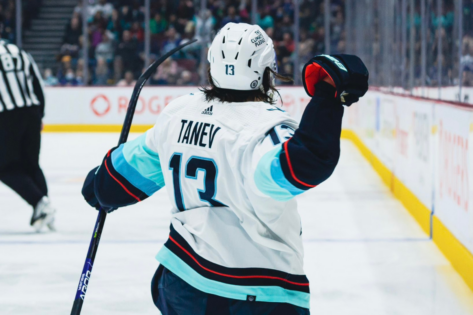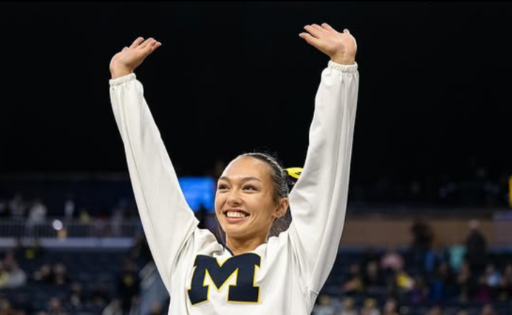“Every time he touches the ball, we have a chance. I love him. In so many ways, he embodies the program we are building.” Vanderbilt head coach Clark Lea’s statement on his QB Diego Pavia was a fitting sign of the performance he put in against Alabama. It was a breathtaking win as Pavia led the offense to defeat the mighty Bama, passing for 252 yards. The NIL coffers opened for him, Vanderbilt was excited for his return in 2025, and the QB was looking eager at that prospect. However, Pavia’s plans faced a slight hiccup with the NCAA.
Due to the QB’s JUCO years, he was denied an extra year of eligibility by the NCAA, which initially dampened Pavia’s future plans. So, what did the QB do? The guy hired a lawyer, went against the NCAA, and got a ruling in his favor from the court, opening the floodgates for wider possibilities for other athletes like him, too. However, while Pavia got the legal victory against the NCAA, the college athletics regulator is still denying extra eligibility to 3 other athletes.
The case of Kaedin Robinson is quite similar to Diego Pavia, as he also began his footballing career at a JUCO college. He did play at Appalachian State for a year and has now transferred to UCLA for his final season. After the transfer, it was initially expected that the player would win an extra year of eligibility, given Diego Pavia’s precedent. However, the NCAA denied the eligibility request, and the player decided to file a lawsuit against the NCAA. Now, the court has come out with a major decision.
“A California federal court has denied UCLA transfer Kaedin Robinson’s motion for a TRO, but set a hearing on the injunction for August 18,” reported Sam C. Ehrlich on X. Surely the denial of the TRO doesn’t necessarily mean that it will be the end of Kaedin Robinson’s legal battle. The major development will now come on August 18th when the court presides to hear his injunction plea. Moreover, it is to be noted that even Diego Pavia was also denied his TRO. That said, there’s another dynamic at play here.
Apart from Kaedin Robinson, the judge is also presiding over the eligibility plea of Jagger Giles, the former Idaho Bengals linebacker, looking for an extra year of eligibility due to his JUCO years. The complication now arises due to the judge’s tough stance on the issue, as Sam C Ehrlich also relayed the same. “Given this judge’s (rather terse) opinion on Giles’s TRO, maybe a tall hill to climb.” Apart from Giles and Robinson, there’s a third player, too, looking for that extra year of eligibility but has been denied.
Nyzier Fourqurean, the Wisconsin cornerback, also faces the NCAA hurdle, and his plea has also been denied by the court. This comes after the U.S District Judge William Conley granted an injunction to play for another year for the player. However, the NCAA appealed this decision at the Court of Appeals, and now the court has come out with its final decision.
A California federal court has denied UCLA transfer Kaedin Robinson’s motion for a TRO, but set a hearing on the injunction for August 18.
Of note, the judge is also presiding over U San Diego transfer Jagger Giles’s case, and also set a hearing in that case for the same day. pic.twitter.com/4hXvrqm1sD
— Sam C. Ehrlich (@samcehrlich) July 30, 2025
“On the same day Nyzier Fourqurean began practicing at #Badgers fall camp despite a court ruling against his plea for an additional year of eligibility, a separate federal court opted against providing another athlete temporary relief related to the NCAA five-year rule and JUCO,” reported Kedrick Stumbris of Athlon Sports on X. But despite the Diego Pavia ruling, why are courts now denying these TROs, and what does it mean for the future of these athletes?
The NCAA toughens its stance on lawsuits
After that Diego Pavia ruling, the NCAA has adopted a tougher stance on eligibility pleas and has even advocated for congressional intervention to protect against these lawsuits. While athletes argue that the denial of eligibility goes against their earning capability due to NIL opportunities. This was also a core issue in Diego Pavia’s plea and has been for Robinson, for instance, who has an NIL value of $450k. As for the NCAA, it has its stance clear.
“The member-approved rules, including years of eligibility, are designed to help ensure competition is safe and fair — aligning collegiate academic and athletic careers to provide high-level opportunities and benefits to hundreds of thousands of student-athletes,” said the NCAA after the Circuit Court stayed the injunction granted to Fourqurean. On contrary, the player’s lawyers argued that the player could earn “hundreds of thousands” in 2025 if given an extra year. The verdict?
The cases are still stuck in a limbo with no clarity regarding the future of the athletes. According to Stewart Mandel of The Athletic, the courts are now reluctant to go against NCAA rulings and consider Pavia’s case “specific.“ “Courts have sided with the NCAA in nearly all other high-profile eligibility challenges,” reported Mandel. All of this means that the road is tough for all three athletes and others who look for an extra year. Although the August 18th injunction hearing would be crucial to watch for Robinson and other athletes in general.
The post 3 College Football Athletes’ Careers on the Line in Latest Court Ruling; One Could Lose $450K appeared first on EssentiallySports.



